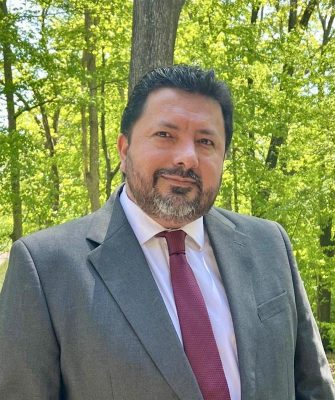Local Child Advocate on Why Westchester’s Children of Immigrants Face Inequality – Even as Citizens
Opinion Advocates for ideas and draws conclusions based on the author/producer’s interpretation of facts and data.
 By Juan Diaz
By Juan Diaz
I was born in Ecuador and came to the United States at 12. Like many undocumented immigrants, I experienced economic, educational, and emotional barriers. Upon adjusting my immigration status, I took advantage of the chance to advance my education and enrolled in college when I was 35 and my daughter was two.
Twelve years later, I am a four-year doctoral student in social welfare at the CUNY Graduate Center, an adjunct professor at the Hunter College Silberman School of Social Work, and my 14-year-old daughter is an honor student herself.
However, when it comes to immigration, stories like mine are not what I focus my research on. Rather, it’s the experiences of people like my youngest sister, who, as the only American-born child in our immigrant family, encountered unique challenges.
Despite being U.S. citizens, many people in her position still feel like immigrants themselves, due to limited opportunities and barriers such as a lack of access to affordable housing and after school programs. These young people are more likely to drop out of college and grow up in poverty and overcrowded housing too.
I am proud New York state lawmakers have enacted some policies to bring these children and their families meaningful relief. This year, New York State expanded the Child Tax Credit, launched the Housing Access Voucher program, and will provide universal free school meals.
However, more must be done.
We need to create stronger economic pillars to help close the inequality gap for these families in Westchester County and across New York. We often highlight the Child Tax Credit as a powerful tool to help parents support their children. It is. But for American children born to immigrant parents, that support cannot stop at age four. What happens as they grow older, when their after-school programs are cut or when their parents cannot access affordable childcare to maintain stable jobs – especially in those cases where their families are not only immigrants, but undocumented immigrants?
After graduating with my bachelor’s degree, I took a job providing social services in Brownsville, Brooklyn. I met so many youth from immigrant families who skipped college or attended part-time to help their parents financially. National Institutes of Health and Sage Journals studies show these first generation Americans often experience more stressors, anxiety, and depression than subsequent generations.
This is no small issue in Westchester County either. A 2019 analysis of U.S. Census data by Migration Policy Institute showed roughly 17,000 “unauthorized” immigrants live in a Westchester household that has at least one American born child.
But first-generation American youth need more than early childhood support. They need access to affordable college, job training, and food security, among other things. These are not extras. They are essential. Such investments build generational wealth and create real pathways to upward mobility.
There’s a misconception mixed status families are not eligible for federal programs like SNAP or Section 8 housing too. However, they can still receive limited assistance so long as one member of their family has a social security number. Outreach to these Westchester County families is so important. We need more of it to fight misinformation, not less.
I once encountered an immigrant home health aide with two children in my previous social services job. Her oldest American-born daughter was a good student and wanted to go to college, but her mom always struggled with rent despite working full time. A few years later, I ran into that mom, and learned her daughter is now a senior in college. She said New York’s COVID-era CityFHEPS housing voucher policy, which removed the court eviction proceedings requirement for eligibility, allowed them to keep a roof over their heads and build the savings needed to pay for college.
That news was as earth shattering as it was affirming.
New York’s eviction protection supplement policy helped her daughter not only earn an education, but social mobility, social capital, and a better future.
Remember, we are talking about American born children in Westchester County. We must create more policies that give them the tools needed to succeed.
Juan Diaz, a Somers resident, serves as the NY State Policy Manager for Children’s Defense Fund-New York.

Examiner Media – Keeping you informed with professionally-reported local news, features, and sports coverage.
